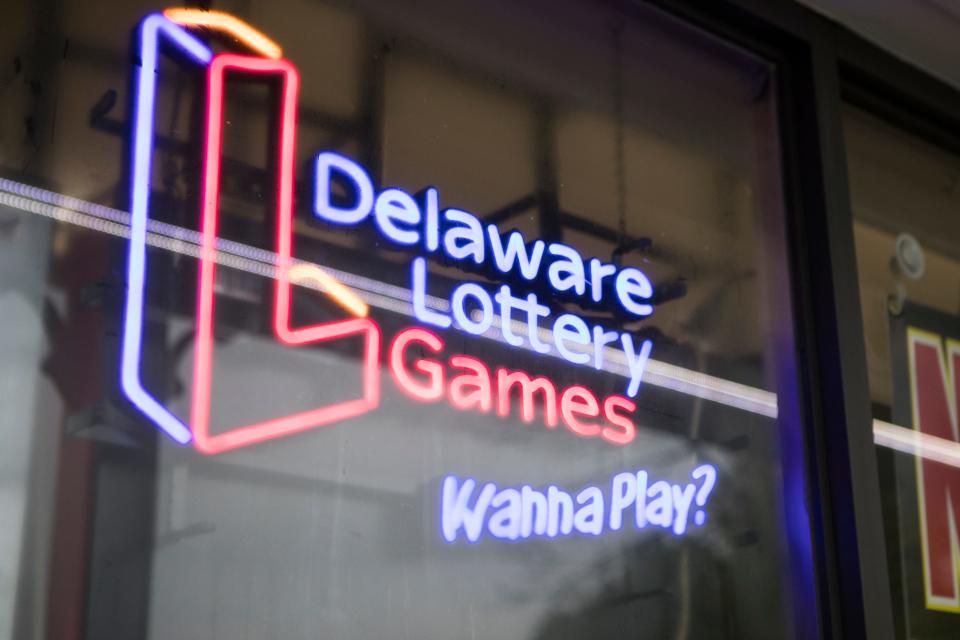Delaware’s new lottery contract could mean a fresh start. Here's why | Opinion
Delaware’s “First State” moniker is a considerable source of pride, but another first has gone largely unheralded. Delaware, back in 2012, became the first state to authorize online casino games, or iGaming, which was revolutionary a decade ago. Still, Delaware’s Lottery-run iGaming and online poker offering was ineffective from its first day.
If you’re the only game in town, like Delaware Lottery’s provider is, you have a captive audience and minimal incentive to invest in the product upgrades and innovations — actions that drove iGaming markets in other states to quickly surpass Delaware’s. While the Delaware Lottery has chugged along — making a steady but wholly uninspiring $14 million in iGaming revenue in all of 2022 — states like Pennsylvania have adopted a competitive market in which multiple entities battle for licenses and market share. For perspective, Pennsylvania had iGaming revenue of $92 million in December alone, generating over $35 million in state and local tax proceeds. These states have been handsomely rewarded for the decision to offer a cutting-edge array of products, as evidenced by their tremendous increases in revenue. But perhaps most important is the consumer — who enjoy better services with better payouts through competition.

The Delaware Lottery’s recent announcement to select a new vendor for iGaming, and the potential to expand into online sports betting, has created excitement in the industry — is Delaware ready to leave its woefully aged system of parlay cards, retail sports betting, and bland run-of-the-mill iGaming options behind? The answer, unfortunately, is still unclear. But they should certainly think twice before sole-sourcing the entire contract to a single vendor again.
As someone who has seen these two approaches — sole source monopoly versus competitive free market — play out all over the world, I can say with absolute confidence that a competitive license model will yield better results across the board. To the north you will find one of the most competitive iGaming markets in the world in New Jersey, which boasts dozens of well-regulated online gaming sites, and the state earns hundreds of millions in tax revenue each year. But look to the west, and you will see one of the biggest boondoggles in the digital era. The Washington, D.C. Lottery decided to eschew industry-leading sports betting brands in favor of their own in-house brand, and the results have been financially and politically devastating. The D.C. sports betting app has been marred by incompetence, corruption, and woeful returns that are likely costing the district when you factor in operating expenses. Delaware should steer clear of the hubris that led to the D.C. debacle; the better course of action is to let the specialists in the industry compete with one another, while the state reaps the rewards.
That is why I’m urging Delaware Lottery to expand its proposal to allow multiple parties to offer iGaming, iPoker and online sports betting in the state. Today’s digitally oriented gaming enthusiast demands top products and diverse offerings, and very few companies offer a best-in-class product in all three unique fields. There’s no reason Delaware couldn’t open its doors to multiple companies to ensure that the state gets the best of everything.
Additionally, Delaware Lottery must prioritize online sports betting expertise over online poker expertise when choosing vendors. Online poker will always have its devotees, but online sports betting is the true key to unlocking a new, younger and more affluent consumer base that probably wouldn’t gravitate to iGaming on their own. Sports betting is a softer sell and a more mass-market product. If Delaware allows several leading sports betting companies to operate mobile sports betting in tandem with iGaming, it could easily see existing revenues increase 100% or more in just the first year.
The Delaware Lottery has the rare opportunity to exponentially grow its revenue and rebrand the First State as a leader in the gaming world. I urge Delaware Lottery to act deliberately, follow the evidence and maximize their potential by creating a competitive multi-operator marketplace for online sports betting, iGaming and poker.
Charles Gillespie is chief executive officer of Gambling.com Group.
This article originally appeared on Delaware News Journal: Delaware’s new lottery contract could mean a fresh start. Here's why

